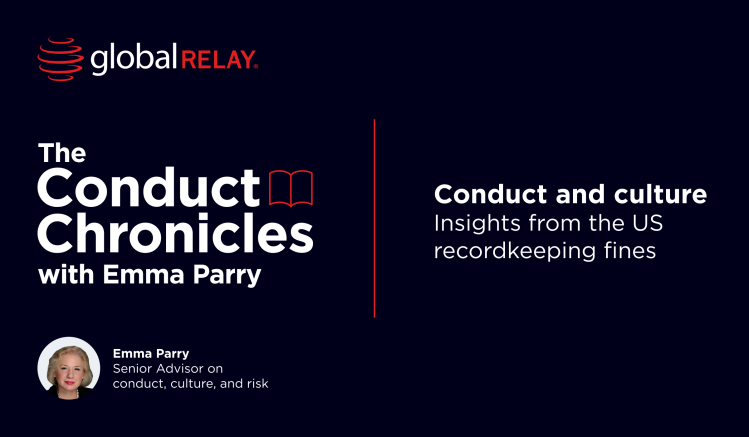While the pace of regulatory enforcement actions has slowed during a period of wider deregulation, the Financial Industry Regulatory Authority (FINRA) has added to a recent run of fines and censures by issuing a $65,000 fine for multiple recordkeeping and Regulation Best Interest (Reg BI) failures.
(Definitely not) by the book
FINRA’s investigation found that, from December 2021 to April 2025, California-based J.K. Financial had breached multiple FINRA Rules, as well as Securities and Exchange Commission (SEC) regulations related to recordkeeping, Reg BI, and professional standards of commercial honor. Amid a catalog of serious failures, it was found that:
- From August 2020 to at least May 2024, the firm’s Written Supervisory Procedures (WSPs) did not identify a specific individual responsible for email archiving and review, and omitted guidance on how reviews should be conducted, including information on how reviews should be documented, the frequency of reviews, and how any issues or content should be flagged.
- From December 2021 to July 2022, J.K. Financial failed to preserve or review any emails related to the firm’s business. Due to a technical problem with the firm’s third-party service provider, emails were not captured or archived during this period across 38 email addresses, resulting in an estimated 1,100 email records being lost.
- While the firm’s WSPs required staff to use the firm’s email system to conduct business, it was found that between August 2020 and February 2024, J.K. Financial allowed some representatives to use outside email addresses to discuss securities business. The firm failed to take steps to review, retain, or preserve these emails.
- J.K. Financial was also found to have failed to establish written policies and procedures or a supervisory system designed to achieve compliance with Reg BI’s care obligation regarding collection of customer information. The firm also had no process for representatives to create records of customer information obtained through oral communications, meaning required records were not kept.
Which regulations did J.K. Financial breach?
By either failing to implement the required policies and procedures, or failing to uphold WSPs and police the conduct of staff, the firm was found to have breached a wide range of FINRA Rules, including:
- SEC Rule 17a-4: A ‘books and records’ rule setting forth obligations for broker-dealers regarding the preservation of records, including customer information, order records, and business correspondence, both incoming and outgoing. The rule also sets out requirements that records be complete, accessible, and retained for a specific period.
- Rule 4511: Mandates that firms must create and maintain “legible, true, accurate, and complete” records for a specified length of time and in a specified format, and applies to all business communications, both internal and external. The rule also requires that firms conduct recordkeeping in line with both FINRA and SEC requirements.
- Rule 3110: Also known as the “supervisory responsibility rule,” this requires firms to establish and maintain a system to “properly supervise” the activities of “associated persons.” The rule requires that firms establish clear WSPs and supervisory procedures “for the review of incoming and outgoing written correspondence and internal communications,” including electronic messages.
- Rule 2010: This rule states that “A member, in the conduct of its business, shall observe high standards of commercial honor and just and equitable principles of trade.” It is also known as “FINRA Conduct Rule 2010” and is designed to ensure firms and individuals operate with integrity and maintain ethical business practices.
The investigation into J.K. Financial is a reminder of the potential “domino effect” of breaching one rule or regulation, as summarized by FINRA’s letter of consent:
“A violation of Exchange Act Rule 17a-4, and FINRA Rules 3110 and 4511 is also a violation of FINRA Rule 2010.”
A small price to pay?
While nowhere near the size of the punitive fines issued by the SEC over the past four years for off-channel communications-related recordkeeping failures, which now total over $3 billion, the $65,000 fine issued against J.K. Financial is still sizable. Other firms must remember that it is not only financial penalties they must be wary of, but ongoing remediation and the substantial reputational impact of having been in the regulatory firing line.
J.K. Financial must, within 90 days, have a senior manager certify that the firm has remediated the issues identified by FINRA, including evidence that it has “implemented a supervisory system, including written supervisory procedures” that are designed to meet the FINRA and SEC rules breached by prior conduct.
Regulatory attentions may have shifted elsewhere, but the takeaway from this case is clear – the rules haven’t changed, and neither have the expectation that they are met. Firms have had years to ensure their policies are clear and fit for purpose, and their capture, archiving, and recordkeeping solutions work as required. “JK” might be widely used internet slang for “just kidding,” but communications compliance enforcements continue to be no laughing matter.
FINRA continues to focus on off-channel communications, and firms need to ensure that they are capturing relevant business communications across every channel they use. Having a reliable, highly searchable compliant archiving solution in place puts firms on the best footing to quickly comply with regulatory requests for records – and to avoid fines.




